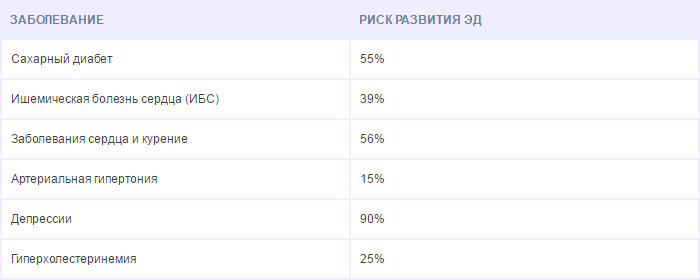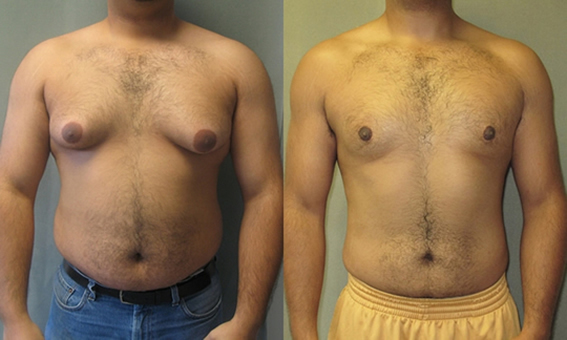Orchiectomy: what is it, how is it done and when is it necessary?
Orchiectomy is an operation to remove one or both testicles. This is an extremely traumatic procedure, which should be carried out strictly according to the indications. The operation has a significant impact on men's health, both physical and mental, but in some cases, it simply does not have alternatives.

- 1
- 1 Indications for surgical treatment
- 2 Preparation for operation
- 3 Procedure
- 4 Contraindications
- 5 Consequences of operation
Indications for surgical treatment
Although testicles are not relevant to vital organs, they play a huge roleIn the normal functioning of the endocrine system of men. In addition, the removal of even one testicle can irreversibly affect reproductive health, so the list of indications is considered exhaustive. In general, these are diseases and conditions in which there are no alternatives to castration:
-

Testicular cancer is the main indication for orchiectomy
Severe necrotic epididymitis with torsion.
- Cancer of the scrotum organs, primarily testicular cancer.
- Injuries, in which the restoration of the anatomical integrity of the organ is simply impossible: separation of the spermatic cord, crushing of the testicle, etc. In this case, removal of the testicle is vital.
- Cancer of the organ or organs of the reproductive system of the body. Primarily the prostate gland. The tactic of carcinoma treatment of the reproductive system is such that radical removal of organs is required, which can be directly or metastatically affected.
- Atrophy of the testis. The cause of atrophy testicles can be varicose veins of the testicle( varicocele), undescended testicles in the scrotum( as a result of which the body receives less oxygen and nutrients).
- Severe infectious lesions of testicles. In the first place is a tubercular nature.
The operation can also be carried out for less strict indications, for example, with a change in gender( transgender).Such cases are extremely rare, but they do exist. The expediency and possibility of carrying out such an operation on healthy testicles is determined by a doctor's consultation, which includes a psychiatrist, urologist, andrologist and other specialists.
Preparation for operation
It is impossible to attribute an orchiectomy to complex surgical interventions. Preparation includes a number of standard procedures:
- Before the operation, the overall condition of the patient's body is assessed. This is done by assigning some laboratory tests: a general blood test, blood biochemistry, a coagulogram, a general urine test, infection tests, etc. Also, diagnostic tools are in use: cardiography, fluorography, etc.
- To assess the nature and extent of the forthcoming surgical intervention, an ultrasound scan of the scrotal organs, a blood test for testosterone concentration, is also performed. These studies make it possible to determine the anatomical features of the affected testicles, to reveal the activity of the male reproductive system.
If non-core pathologies are present, consultation of outside specialists is indicated: cardiologists, nephrologists, oncologists( with malignant process), etc. When the operation is scheduled for a neoplastic process( cancer), it is advisable to undergo preliminary chemo- and radiotherapy courses in order to stabilize the tumor size.
It is much worse when the intervention is necessary for a young childless man: the reproductive expert's consultation is mandatory. At the moment, it is possible to "freeze" the genetic material for subsequent artificial insemination.
At least a week and a half before the operation, all drugs, especially those containing aspirin, also anti-inflammatory drugs, anticoagulants are canceled. There is an exception, if the drugs do not affect the rate of blood clotting, they can continue to be taken.
Direct preparation for orchiectomy is already in the hospital and consists in the hygiene of the scrotum( shaving of the hairline, treatment of the skin with an antiseptic solution).The last meal - for 6-8 hours before the intervention, you can drink water, but 2-3 hours before the operation you need to give up and drink.
Progress of operation

Operation is performed under general anesthesia
Intervention is performed under general anesthesia( with rare exceptions).The entire procedure lasts for about an hour, with a severe lesion somewhat longer.
During the operation, complete or partial resection of the testicle is possible. The presence of the cancer process involves a radical removal of all the anatomical structures of the testicles. In the case of non-cancerous process, a partial resection of the testicle( usually one-sided) is shown with preservation of the spermatic cord. As it was said, the operation lasts for about an hour. All this time the patient sleeps and does not experience uncomfortable sensations.
At the end of the operation, the patient is transferred to the intensive care unit under supervision, since postoperative complications may develop. This is a standard procedure, which does not mean anything bad. Usually, after the first operation, prosthetic testis is performed.
In general, the most sparing tactics of surgical intervention is selected with excision of tissues affected by this or that process and preservation of healthy tissues.
In the postoperative period, dressings are shown, treatment of the wound with an antiseptic and taking analgesic preparations to stop the pain syndrome. The period of complete recovery after surgery is about 10 days. After this period, the doctor removes the seams, and the man can return to normal life.
Contraindications
There are also such conditions, which are contraindications for conducting an orchiectomy.
- Severe lung diseases in the stage of decompensation with respiratory failure of 2-3 stages.
- IHD, myocardial infarction.
- Severe bleeding disorders.
- Diseases of the liver, kidneys.
- Cancerous tumors in the final stage with multiple metastases.
Consequences of operation
If an operation is performed to remove one testicle - consequences, with the exception of temporary hot flashes, there is no heat( with some exceptions).The reproductive function is preserved. It is quite another matter if the removal of both testicles( bilateral orchiectomy or complete castration) is performed. In this case, the consequences of the intervention are obvious:
- Absolute infertility.
- Endocrine problems with an increased likelihood of developing diabetes mellitus, increased fragility of bones( osteoporosis).
- Imbalance of the hormonal background with obesity, gynecomastia, skin problems, etc.
- Decreased libido, sensitivity of the genitals.
- The inability to commit sexual acts.
These complications are hard to affect, including on the psyche of men, because they doom a person to disability.

After removal of two testicles, substitution therapy with hormones
is indicated. After bilateral orchiectomy, hormone replacement therapy with testosterone-based drugs is indicated. Specific pharmaceutical products should be selected together with a doctor-endocrinologist.
Orthectomy is the most radical way of treating reproductive system diseases. However, in a number of cases, there is simply no alternative to such therapy. In this case, it is necessary to decide what is more important, one's own health, perhaps life, or reproductive function. Fortunately, such exceptional measures as bilateral orchiectomy are rarely required.
Recommended for viewing:


